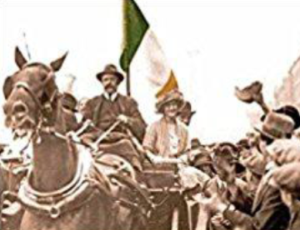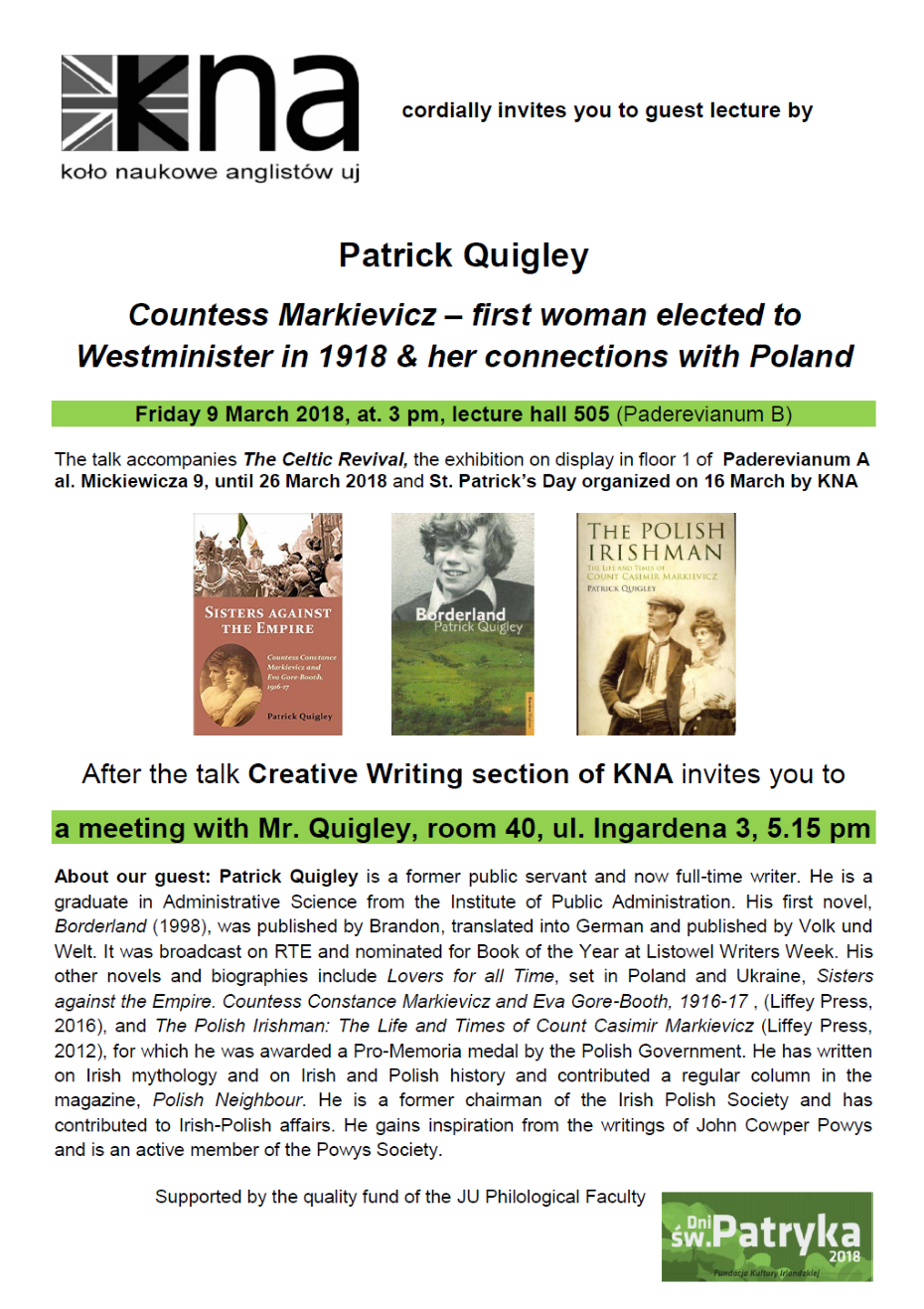
Association of Students of English cordially invites you to the guest lecture by Patrick Quigley
Association of Students of English cordially invites you to the guest lecture "Countess Markievicz – first woman elected to Westminister in 1918 & her connections with Poland" by Patrick Quigley, on Friday 9 March 2018, at. 3 pm, lecture hall 505 (Paderevianum B)
The talk accompanies "The Celtic Revival", the exhibition on display in floor 1 of Paderevianum A al. Mickiewicza 9, until 26 March 2018 and St. Patrick’s Day events organized on 16 March by ASE.
After the talk Creative Writing section of KNA invites you to a meeting with Mr. Quigley, room 40, ul. Ingardena 3, 5.15 pm.
About our guest: Patrick Quigley is a former public servant and now full-time writer. He is a graduate in Administrative Science from the Institute of Public Administration. His first novel, Borderland (1998), was published by Brandon, translated into German and published by Volk und Welt. It was broadcast on RTE and nominated for Book of the Year at Listowel Writers Week. His other novels and biographies include Lovers for all Time, set in Poland and Ukraine, Sisters against the Empire. Countess Constance Markievicz and Eva Gore-Booth, 1916-17, (Liffey Press, 2016), and The Polish Irishman: The Life and Times of Count Casimir Markievicz (Liffey Press, 2012), for which he was awarded a Pro-Memoria medal by the Polish Government. He has written on Irish mythology and on Irish and Polish history and contributed a regular column in the magazine, Polish Neighbour. He is a former chairman of the Irish Polish Society and has contributed to Irish-Polish affairs. He gains inspiration from the writings of John Cowper Powys and is an active member of the Powys Society.


